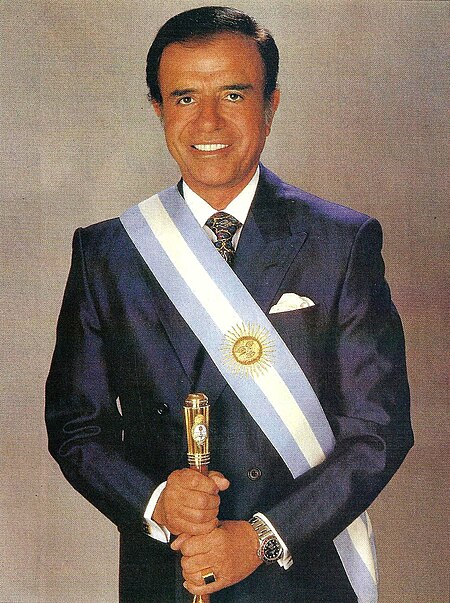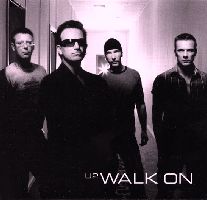Bruges speech
| |||||||||
Read other articles:

1965 studio album by Chet BakerBaker's HolidayStudio album by Chet BakerReleased1965RecordedMay 1965StudioNYCGenreJazzLength32:03LabelLimelightLM-82019/LS-86019ProducerLuchi DeJesusChet Baker chronology Stella by Starlight(1964) Baker's Holiday(1965) Smokin' with the Chet Baker Quintet(1965) Baker's Holiday is an album of songs associated with Billie Holiday by trumpeter/vocalist Chet Baker which was recorded in 1965 and released on the Limelight label.[1][2][3]...

Prédio do Hall da Fama da NASCAR O Hall da Fama da NASCAR é uma premiação de honra aos pilotos, chefes e proprietários de equipe e colaboradores que contribuíram para a NASCAR. Está sediado na sede da NASCAR em Charlotte, Carolina do Norte. História O Hall da Fama foi criado em 2006 e Charlotte foi escolhido para ser o local de construção. O intuito era honrar os colaboradores do campeonato desde 1949, a competição mais famosa de stock car mundial.[1] Referências ↑ «dia de abe...

Ярослав Булант Jaroslav BulantГромадянство Чехословаччина ЧехіяДата народження 21 квітня 1964Місце народження Тршебич, ЧехословаччинаРобоча рука ПраваПризові, USD $85,900Одиночний розрядМатчів в/п 2–9Титулів 0Найвища позиція Ранг 142 (3 квітня 1989)Парний розрядМатчів в/п 2–6Титулі

Опис файлу Опис Лого Чемпіонату світу з хокею із шайбою 2020 (жінки) Джерело Сайт ІІХФ Час створення невідомий Автор зображення ІІХФ Ліцензія Це логотип (емблема) організації, товару, або заходу, що перебуває під захистом авторських прав та/або є товарним знаком. Використан�...

This article is part of a series onTaxation in the United States Federal taxation Alternative minimum tax Capital gains tax Corporate tax Estate tax Excise tax Gift tax Generation-skipping transfer tax Income tax Payroll tax Internal Revenue Service (IRS) Internal Revenue Code (IRC) IRS tax forms Revenue by state History Constitutional authority Taxpayer standing Court Protest Evasion Resistance State and local taxation State income tax Property tax Sales tax State and local tax deduction Use...

Los Alfajores de la Pampa Seca Los Alfajores de la Pampa Seca en vivo.Datos generalesOrigen Mendoza, ArgentinaInformación artísticaGénero(s) Rock and roll Blues rockPeríodo de actividad 1989 - 2002 2007 - PresenteArtistas relacionados Vox DeiPappoCeleste Carvallo Chancho VaMiembros Sergio Bonelli (guitarra y voz)Paula Casciani (bajo y coros)Roberto Fiat (guitarra)Carlos Casciani (batería)Exmiembros Gerardo Lucero (bajo)Ariel Frías (bajo)Flavio Barrientos (bajo)[editar dat...

This article has multiple issues. Please help improve it or discuss these issues on the talk page. (Learn how and when to remove these template messages) This biography of a living person needs additional citations for verification. Please help by adding reliable sources. Contentious material about living persons that is unsourced or poorly sourced must be removed immediately from the article and its talk page, especially if potentially libelous.Find sources: Vibha Parthasarathy –...

1956 film by Michael Curtiz The Scarlet HourTheatrical release posterDirected byMichael CurtizScreenplay byAlford Van RonkelFrank TashlinJohn Meredyth LucasStory byAlford Van RonkelFrank TashlinProduced byMichael CurtizStarringCarol OhmartTom TryonJody LawranceCinematographyLionel LindonEdited byEverett DouglasMusic byLeith StevensColor processBlack and whiteProductioncompanyMichael Curtiz ProductionsDistributed byParamount PicturesRelease date April 5, 1956 (1956-04-05) Runnin...

Female German and Austrian rebuilders after World War II You can help expand this article with text translated from the corresponding article in German. (July 2015) Click [show] for important translation instructions. View a machine-translated version of the German article. Machine translation, like DeepL or Google Translate, is a useful starting point for translations, but translators must revise errors as necessary and confirm that the translation is accurate, rather than simply copy-p...

Carlos Saúl Menem Retrato oficial de Menem, por Víctor Bugge, 1995 Presidente de la Nación Argentina 8 de julio de 1989-10 de diciembre de 1999(10 años y 155 días)Gabinete Gabinete de Carlos MenemVicepresidente Eduardo Duhalde (1989-1991) Vacante (1991-1995) Carlos Ruckauf (1995-1999)Predecesor Raúl AlfonsínSucesor Fernando de la Rúa Senador de la Nación Argentinapor La Rioja 10 de diciembre de 2005-14 de febrero de 2021Predecesor Eduardo MenemSucesor Ricardo Antonio Guerra...

2001 single by U2 Walk OnSingle by U2from the album All That You Can't Leave Behind Released20 February 2001 (2001-02-20)Recorded2000StudioHQ (Dublin, Ireland)GenreRockLength 4:55 (album version) 4:09 (single version) 4:25 (edited version) 4:29 (video version) Label Island Interscope Composer(s)U2Lyricist(s)BonoProducer(s) Daniel Lanois Brian Eno Steve Lillywhite U2 singles chronology Elevation (2001) Walk On (2001) Electrical Storm (2002) Music videoWalk On on YouTubeAudio sam...

This article needs additional citations for verification. Please help improve this article by adding citations to reliable sources. Unsourced material may be challenged and removed.Find sources: The Ninth Day – news · newspapers · books · scholar · JSTOR (May 2023) (Learn how and when to remove this template message) 2004 German filmThe Ninth DayTheatrical release posterDirected byVolker SchlöndorffWritten byEberhard GörnerAndreas PflügerProduced by...

Flag-related holiday For other uses, see Flag day (disambiguation). Stamp celebrating 50th Flag Day of the Faroe Islands A flag day is a flag-related holiday, a day designated for flying a certain flag (such as a national flag) or a day set aside to celebrate a historical event such as a nation's adoption of its flag. Flag days are usually codified in national statutes passed by legislative bodies or parliaments; however, in some countries a decree or proclamation by the head of state or chie...

US federal judge (1866–1943) Julian MackSenior Judge of the United States Court of Appeals for the Second CircuitIn officeSeptember 6, 1940 – September 5, 1943Judge of the United States Court of Appeals for the Second CircuitIn officeJuly 1, 1929 – September 6, 1940Appointed byoperation of lawPreceded bySeat established by 36 Stat. 539Succeeded bySeat abolishedJudge of the United States Court of Appeals for the Sixth CircuitIn officeJuly 1, 1929 – June 30, 1...

View of Attard and the surrounding area from the walls of Mdina. Three villages of Malta Attard Balzan Lija The Three Villages (Maltese: It-Tliet Irħula) refers to the Maltese villages of Attard, Balzan, and Lija, which are around the centre of the island.[1] The Three Villages are known as such because of their close proximity to one another. In some cases one side of the street is part of one village while the opposite side of the same street is part of another village. The three v...

Photograph For the 1934 film, see Dancing Man (film). For the Los Angeles Clippers fan, see Clipper Darrell. This article needs additional citations for verification. Please help improve this article by adding citations to reliable sources. Unsourced material may be challenged and removed.Find sources: Dancing Man – news · newspapers · books · scholar · JSTOR (March 2018) (Learn how and when to remove this template message) Dancing Man, Sydney, Austral...

Bake Oven KnobView of the Lehigh Valley from the Appalachian Trail at Bake Oven Knob, June 2007Highest pointElevation1,560 ft (480 m)[1]Coordinates40°44′55″N 75°44′02″W / 40.7487057°N 75.7338004°W / 40.7487057; -75.7338004[2]GeographyBake Oven KnobLocation of Bake Oven Knob in Pennsylvania LocationLehigh County, PennsylvaniaParent rangeAppalachian MountainsClimbingEasiest routeAppalachian Trail, from nearby parking in Germansv...

INSStruktur yang tersediaPDBPencarian Ortolog: PDBe RCSB Daftar kode id PDB1A7F, 1AI0, 1AIY, 1B9E, 1BEN, 1EV3, 1EV6, 1EVR, 1FU2, 1FUB, 1G7A, 1G7B, 1GUJ, 1HIQ, 1HIS, 1HIT, 1HLS, 1HTV, 1HUI, 1IOG, 1IOH, 1J73, 1JCA, 1JCO, 1K3M, 1KMF, 1LKQ, 1LPH, 1MHI, 1MHJ, 1MSO, 1OS3, 1OS4, 1Q4V, 1QIY, 1QIZ, 1QJ0, 1RWE, 1SF1, 1T1K, 1T1P, 1T1Q, 1TRZ, 1TYL, 1TYM, 1UZ9, 1VKT, 1W8P, 1XDA, 1XGL, 1XW7, 1ZEG, 1ZEH, 1ZNJ, 2AIY, 2C8Q, 2C8R, 2CEU, 2H67, 2HH4, 2HHO, 2HIU, 2JMN, 2JUM, 2JUU, 2JUV, 2JV1, 2JZQ, 2K91, 2K9R, 2K...

نهر رحمة نهررحمه - قرية - تقسيم إداري البلد إيران[1] المحافظة محافظة خوزستان المقاطعة مقاطعة الفلاحية قسم القسم المركزي القسم الريفي أبشار إحداثيات 30°35′56″N 48°42′47″E / 30.59889°N 48.71306°E / 30.59889; 48.71306 السكان التعداد السكاني 535 نسمة (إحصاء 2016) معلومات �...

Playa de La Puntica Playa de La Puntica País EspañaCaracterísticasLongitud 520 metrosAncho 40 metrosOcupación AltaUrbanización UrbanaPaseo marítimo SíCaracterísticas específicasTipo de arena Arena fina y grisComposición ArenaCondiciones baño Aguas tranquilasAccesibilidadAccesible SíTipo de acceso A pie(fácil)Acceso señalizado Sí[editar datos en Wikidata] La Playa de La Puntica es playa más antigua de Lo Pagán en el Mar Menor....




